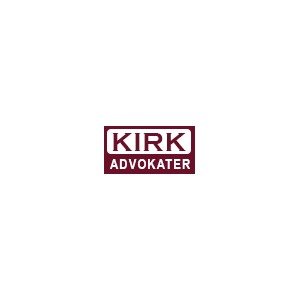Best Corporate & Commercial Lawyers in Denmark
Share your needs with us, get contacted by law firms.
Free. Takes 2 min.
Or refine your search by selecting a city:
List of the best lawyers in Denmark
About Corporate & Commercial Law in Denmark
Corporate & Commercial law in Denmark encompasses the rules and regulations governing the creation, operation, and management of businesses as well as the conduct of commercial transactions. Danish law provides a stable and business-friendly environment, attracting domestic and international investors. The legal framework covers a wide range of topics, including company formation, mergers and acquisitions, contracts, intellectual property, competition law, and compliance with EU directives. Danish business legislation is robust and transparent, aimed at ensuring fair competition, safeguarding shareholder rights, and promoting ethical business practices.
Why You May Need a Lawyer
Navigating the complexities of Corporate & Commercial law in Denmark can be challenging, especially for those unfamiliar with local regulations and procedures. There are many situations where hiring a lawyer is valuable. These include:
- Establishing or registering a new company in Denmark
- Drafting, reviewing, or negotiating business contracts and agreements
- Advising on mergers, acquisitions, or joint ventures
- Ensuring compliance with Danish and EU-based regulations
- Resolving shareholder or partnership disputes
- Guiding on intellectual property protection for trademarks, patents, and copyrights
- Managing employment law matters within a company
- Addressing insolvency or bankruptcy issues
- Addressing commercial real estate transactions
- Litigating or arbitrating commercial disputes
Having legal expertise can help minimize risks, prevent future disputes, and ensure that a business is operating within the bounds of Danish law.
Local Laws Overview
Danish Corporate & Commercial law is primarily governed by various statutes and influenced by EU laws. Important areas include:
- The Danish Companies Act (Selskabsloven): This act governs the formation, management, and dissolution of companies, including private (ApS) and public (A/S) limited liability companies, as well as partnerships.
- The Danish Contracts Act: This regulates the formation, validity, and interpretation of commercial contracts under Danish law.
- Danish Competition Law: These rules ensure fair competition and are harmonized with EU competition regulations.
- Employment Legislation: Statutes such as the Danish Salaried Employees Act (Funktionærloven) provide key employee protections.
- Intellectual Property Laws: These cover copyrights, trademarks, patents, and design rights, with enforcement aligned to international agreements and EU directives.
- Taxation and Reporting Requirements: Danish companies must comply with corporate tax laws and accounting standards, including registration with the Danish Business Authority (Erhvervsstyrelsen).
- Bankruptcy and Insolvency Laws: The Bankruptcy Act provides clear rules for handling insolvency proceedings and restructuring.
Foreign companies and investors should note that Denmark is part of the European Union, meaning that many EU directives and regulations apply directly to Danish business operations.
Frequently Asked Questions
What types of companies can be established in Denmark?
The most common company types are the private limited company (Anpartsselskab, ApS) and the public limited company (Aktieselskab, A/S). Other forms include partnerships and sole traders.
How long does it take to register a company in Denmark?
Company registration can be completed in a few days if all documents are in order. The process is managed online through the Danish Business Authority.
Is a local director required for Danish companies?
No, there is no legal requirement for directors to be Danish residents. However, at least one director from the European Economic Area (EEA) is usually required, unless an exemption is granted.
What are the minimum share capital requirements?
For a private limited company (ApS), the minimum share capital is DKK 40,000. For a public limited company (A/S), it is DKK 400,000.
Are shareholder agreements common in Denmark?
Yes, shareholder agreements are commonly used to regulate the relationship between shareholders, including voting rights, exit provisions, and dispute resolution.
How are business contracts governed in Denmark?
Contracts are generally governed by the Danish Contracts Act, and parties are encouraged to draft clear and comprehensive contracts to avoid disputes.
Are there restrictions on foreign ownership?
In most sectors, there are no restrictions on foreign ownership. However, some regulated industries, such as financial services, may have specific requirements.
What are the main tax obligations for Danish companies?
Companies must register for corporate taxation, file annual reports, and comply with Danish VAT and employment tax rules.
How can intellectual property be protected in Denmark?
Trademarks, patents, and designs can be registered with relevant Danish or EU authorities, and enforcement is supported through Danish courts.
What are the main dispute resolution methods in Denmark?
Most commercial disputes are resolved through Danish courts or arbitration. Mediation is also an option. Arbitration clauses are common in business contracts.
Additional Resources
If you need further information or assistance, consider the following organizations and governmental bodies related to Corporate & Commercial matters in Denmark:
- Danish Business Authority (Erhvervsstyrelsen) - Company registrations and corporate regulation
- Danish Commerce and Companies Agency - Business regulations and guidance
- Danish Competition and Consumer Authority - Competition and market regulations
- Danish Patent and Trademark Office - Intellectual property rights
- Danish Tax Agency (Skattestyrelsen) - Taxation and reporting
- Confederation of Danish Industry - Business support and advocacy
- Chambers of Commerce and local legal clinics for business support
Next Steps
If you believe you need legal help with Corporate & Commercial matters in Denmark, consider these steps:
- Identify your specific legal needs - company formation, contract review, dispute resolution, etc.
- Gather all relevant documentation and business information.
- Contact a reputable Danish law firm or legal advisor experienced in Corporate & Commercial law.
- Prepare a list of questions or concerns to maximize the effectiveness of your consultation.
- If you are an international client, seek advice from firms with cross-border experience.
Taking proactive steps and seeking specialized legal assistance can help safeguard your business interests and ensure compliance with Danish Corporate & Commercial laws.
Lawzana helps you find the best lawyers and law firms in Denmark through a curated and pre-screened list of qualified legal professionals. Our platform offers rankings and detailed profiles of attorneys and law firms, allowing you to compare based on practice areas, including Corporate & Commercial, experience, and client feedback.
Each profile includes a description of the firm's areas of practice, client reviews, team members and partners, year of establishment, spoken languages, office locations, contact information, social media presence, and any published articles or resources. Most firms on our platform speak English and are experienced in both local and international legal matters.
Get a quote from top-rated law firms in Denmark — quickly, securely, and without unnecessary hassle.
Disclaimer:
The information provided on this page is for general informational purposes only and does not constitute legal advice. While we strive to ensure the accuracy and relevance of the content, legal information may change over time, and interpretations of the law can vary. You should always consult with a qualified legal professional for advice specific to your situation.
We disclaim all liability for actions taken or not taken based on the content of this page. If you believe any information is incorrect or outdated, please contact us, and we will review and update it where appropriate.
Browse corporate & commercial law firms by service in Denmark
Denmark Attorneys in related practice areas.
Browse corporate & commercial law firms by city in Denmark
Refine your search by selecting a city.
















